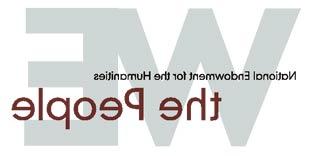Lessons
Lesson for Core Concept #8: History is a Series of Decisions
Siobhan Dennis, Lesley University, MA
History is a process involving a series of decisions that could have had different outcomes, not a set of preordained events that simply unfolded over time.
Overall goals of the lesson:
Using two primary source documents taken from the Coming of the American Revolution Timeline, students explore the ideas that:
- Individuals and group decisions impact the course of history
- Decisions are both impacted by and in turn impact decisions made by others
- Neither decisions nor outcomes are inevitable; they have been made differently with different results
Behavioral objectives:
Students will apply the concept of counterfactuals (What if? questions). Students will examine primary source documents and create hypothetical situations of how the course of history could have been different based on some critical decisions. Students will express their thinking of how a look at counterfactual history can lead to a greater understanding and appreciation for the actual events that did occur prior to and during the American Revolution.
Document Section
The Stamp Act
A Tax Not Too Burdensome
The Boston Massacre
A Tumultuous Week in Boston
"Boston, March 12. The Town of Boston affords a recent and melancholy Demonstration ..."
Article from pages 2-3 of The Boston-Gazette, and Country Journal, Number 779, 12 March 1770
View Document
Washington Takes Command of the Continental Army
“Chief of all the Forces Rais’d”
Document Link: “Chief of all Forced Rais’d”
This is a transcription of Benjamin Franklin’s testimony before the House of Commons.
The Examination of Doctor Franklin, before an August Assembly, relating to the Repeal of the Stamp-Act, &c.
View Document
Procedures:
- On board post, “History did not have to occur the way it did.”
- Students will share their thoughts on the prompt through a whole class discussion.
- Teacher will introduce the concept of counterfactuals to students; the “What if?” questions that can be applied to historical events (thoughts of what could have been).
- Teacher will model examples of counterfactual thinking of how events, big or small, could have altered history. (What if Abraham Lincoln didn’t go to the theater the night he was shot?)
- Using the three primary source documents selected from the MHS website, teacher will divide the class into three groups giving each group one document in primary and transcribed form. Students should each have their own hard copy to mark up.
- In groups students will hypothesize the following “What if?” questions and their possible outcomes:
- The Stamp Act – What if the Sons of Liberty did not have access to, or use the power of the press to gain sympathy for their cause?
- The Boston Massacre – What if that event of March 5, 1770 had not been called a “massacre” by certain parties?
- Washington Takes Command – What if a Massachusetts general had led the colonial troops in the Revolution?
- Students should be encouraged to hypothesize and discuss scenarios that are relatively realistic.
Assessment:
Independently, students are asked to respond to the following question to extend their thinking and understanding of the small groups’ counterfactual study using primary source documents:
How can a look at counterfactual history lead to a greater understanding and appreciation for the actual events that did occur prior to and during the American Revolution?
Reading Extension Suggestion
Have students read The Year of the Hangman by Garry Blackwell (Speak Publisher, 2004). It is a counterfactual novel that explores what might have happened had the British won the American Revolution.



